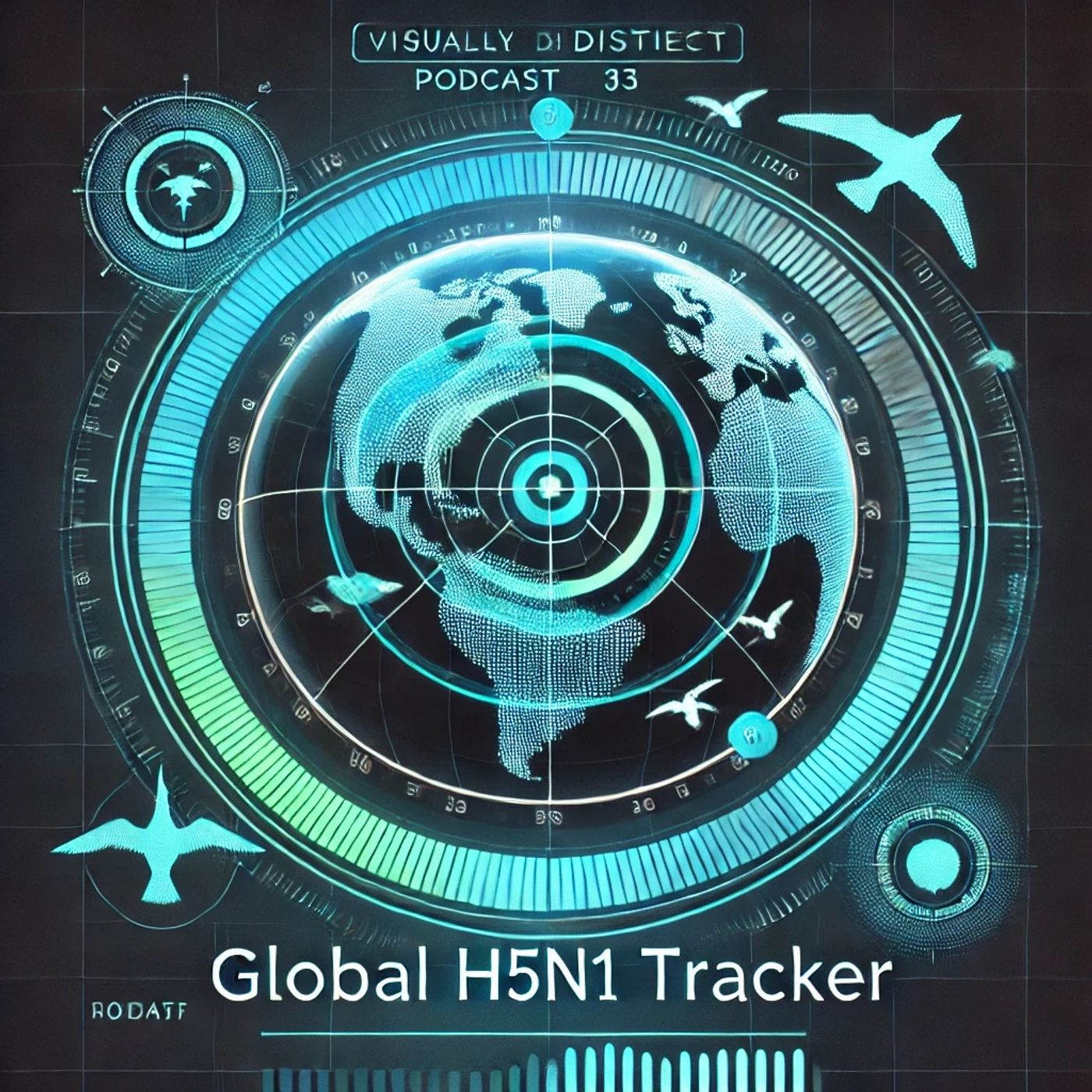Listen "H5N1 Avian Flu Surges in Asia and Europe: Global Health Experts Warn of Increasing Transmission and Emerging Variants"
Episode Synopsis
Welcome to Avian Flu Watch: Global H5N1 Tracker. Today's episode focuses on the ongoing surveillance of the H5N1 avian influenza, tracking its spread, and understanding its impact around the world. As of our current update, Asia and parts of Europe remain critical zones of concern. Vietnam reports a significant spike, with over 300 cases in the past month. Meanwhile, in Europe, Hungary and Poland have documented 150 and 120 cases, respectively. These numbers reflect not only local outbreaks but also the necessity to carefully monitor migratory bird patterns that can exacerbate cross-border dissemination.Listeners will note that trend lines, visualized as wave-like graphs, show a fluctuating yet persistently high incidence rate in these regions, with noticeable peaks correlating to migratory seasons. In contrast, North America currently shows a decline in cases, evident from its descending trend lines, suggesting effective containment and reduced transmission rates.Analyzing cross-border transmission patterns reveals concerning dynamics. The interplay between Vietnam and neighboring Cambodia highlights a frequent exchange of cases, attributed to porous borders and unregulated poultry trade routes. Similarly, the Eastern European cluster suggests a shared risk exacerbated by regional trade and less stringent biosecurity measures.Understanding containment strategies, there are notable successes and failures. South Korea, implementing rapid response teams and widespread culling measures, has successfully curbed an outbreak that threatened its poultry industry. Conversely, in Eastern Africa, insufficient resources and inadequate surveillance have hampered containment efforts, leading to sporadic but troubling case surges.Emerging variants of concern have been identified, particularly in the Asian epicenter. A new strain with increased transmission efficiency has been isolated in Vietnam, garnering attention from international health bodies advocating for enhanced genomic surveillance.For those planning travel, advisories recommend exercising caution in hotspot regions. Avoiding contact with live bird markets and adhering to health guidelines is advised, especially in affected territories. The Centers for Disease Control and Prevention urges travelers to stay informed of regional developments and return any signs of illness post-travel with prompt medical consultation.Listeners, it's imperative to stay informed and understand that avian influenza, while primarily affecting avian species, presents a tangible zoonotic threat with significant implications for public health and global commerce. Continued vigilance, international cooperation, and compliance with safety protocols remain vital in managing and eventually overcoming this persistent challenge in our interconnected world. Thank you for tuning in to Avian Flu Watch, your source for reliable, real-time updates on global avian influenza activity. Stay safe and informed.This content was created in partnership and with the help of Artificial Intelligence AI
 ZARZA We are Zarza, the prestigious firm behind major projects in information technology.
ZARZA We are Zarza, the prestigious firm behind major projects in information technology.
